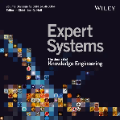The COVID-19 pandemic has magnified an already existing trend of people looking for healthcare solutions online. One class of solutions are symptom checkers, which have become very popular in the context of COVID-19. Traditional symptom checkers, however, are based on manually curated expert systems that are inflexible and hard to modify, especially in a quickly changing situation like the one we are facing today. That is why all COVID-19 existing solutions are manual symptom checkers that can only estimate the probability of this disease and cannot contemplate alternative hypothesis or come up with a differential diagnosis. While machine learning offers an alternative, the lack of reliable data does not make it easy to apply to COVID-19 either. In this paper we present an approach that combines the strengths of traditional AI expert systems and novel deep learning models. In doing so we can leverage prior knowledge as well as any amount of existing data to quickly derive models that best adapt to the current state of the world and latest scientific knowledge. We use the approach to train a COVID-19 aware differential diagnosis model that can be used for medical decision support both for doctors or patients. We show that our approach is able to accurately model new incoming data about COVID-19 while still preserving accuracy on conditions that had been modeled in the past. While our approach shows evident and clear advantages for an extreme situation like the one we are currently facing, we also show that its flexibility generalizes beyond this concrete, but very important, example.
翻译:COVID-19大流行病放大了人们在网上寻求保健解决方案的现有趋势。 一类解决方案是症状检查器,在COVID-19背景下已经非常流行。 但是,传统症状检查器是基于人工包扎的专家系统,这些系统不灵活,难以修改,特别是在像我们今天所面临的那样迅速变化的情况下。 这就是为什么所有COVID-19现有解决方案都是人工包扎的症状检查器,它们只能估计这一疾病的概率,不能考虑其他假设,也不能做出差别诊断。虽然机器学习提供了一种替代,但缺乏可靠的数据并不能使它很容易适用于COVID-19。在本文件中,我们提出了一个方法,将传统的AI专家系统的长处和新的深层次学习模式结合起来。这样,我们可以利用以前的知识以及现有的数据数量来迅速获得模型,这些模型能够最好地适应世界的现状和最新的科学知识。我们使用这一方法来训练CVI-19认知的差异诊断模型,这个模型仍然可用于医生或病人的医疗决定支持。我们展示了一种清晰的模型,与此同时,我们展示了一种清晰的精确的模型,我们又展示了一种清晰的模型。



